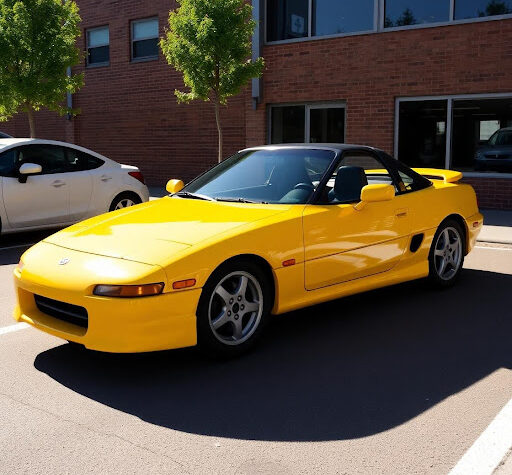
Ibiden Ramps Up
The growing demand for diesel particulate filters is a boon for suppliers.
 |
| Ibiden currently supplies the Peugeot 607 (shown), 406, 307 and Citro?n’s C5. |
A senior Ibiden official says the company will add another carmaker this year though declined to provide details.
Of Ibiden’s competitors, the official feels that only NGK Insulators Ltd. is close to being able to mass-produce DPFs. NGK, a leading maker of ceramic substrates for catalytic converters, is expected to supply an unnamed European carmaker in 2004.
Meanwhile, Denso Corp., which also produces ceramic substrates, supplies cordierite DPFs to Toyota Motor and Hino Motor for their DPNR system which is available on the Avensis car and Dutro truck.
The Ibiden official says Toyota is experiencing difficulties in Europe with its Denso-made cordierite DPF. The official adds that Toyota’s DPNR system “is not stable (when switching between) stop-and-go and high-speed driving and that ‘light-off’ requires a temperature of more than 1,200 degrees. Such high temperatures melt cordierite,” he says. “Silicon-carbide will not melt at this level.” Toyota would not confirm or deny the report
The official concedes that the biggest drawback of silicon-carbide is cost: estimated at 15-20 percent more than cordierite. Still, the Ibiden official predicts that DPF demand in Europe will grow to 3 million units in 2006, 30 percent of an estimated 8-9 million diesel vehicles to be sold. He expects a DPF penetration rate of 90 percent toward the end of the decade when Euro 5 regulations take effect with unit costs down by half. The official goes on to explain that small cars like Peugeot 206 can meet Euro 4 standards without a DPF using the engine management system. “Heavier cars like BMW’s 5-series or Mercedes E-Class cannot,” he says. Ibiden currently supplies Peugeot 607, 406, 307 and Citro?n’s C5.
The official expects Japanese DPF sales to grow to 100,000 in 2008, essentially one unit for each light-, medium- and heavy-duty truck and bus produced during the year. He does not foresee the sale of many diesel passenger cars. In the U.S. market, the official expects sales to grow to 500,000 units in 2008 with demand being driven by new EPA regulations scheduled to go into effect the preceding year. Like in Japan, he anticipates little demand for diesel cars.
Meanwhile, Denso, Japan’s largest automotive parts supplier, says its strength is in a ‘total systems’ approach. “The difference between us and our competitors (Ibiden and NGK) is that we also have a high-pressure (180 MPa) common rail injection system,” says a senior researcher.
While admitting that cordierite has low heat resistance when compared to silicon carbide, he feels that the material’s limitations are offset by the ‘total systems’ approach. Thus, Denso’s 1,800-bar common rail injection system has been adopted by Mazda for the diesel version of the Mazda 6 (Atenza) and MPV, Toyota for the Avensis and Corolla, and Nissan Primera, Almera, Tino and X-Trail, all in Europe, and the Mazda Bongo, Toyota Land Cruiser, Prado, Hilux Surf and Dyna, HinoDutro, Range and Super Dolphin, Nissan DieselCondor and Isuzu Elf in Japan.
Denso began production of 180 MPa common rail systems in Hungary last year at Denso Manufacturing Hungary Ltd. and in Thailand this year at Siam Denso Manufacturing Co., Ltd. In Japan, the company produces the system at its Nishio plant.
Like his counterpart at Ibiden, the Denso official says Europe is the most promising market for DPFs. Slightly less bullish, he predicts that demand for diesel-powered cars and light trucks will grow to 6 million units in 2005, of which 10 percent will be fitted with DPFs, and 7 million in 2010, at which time the penetration rate will exceed 50 percent.
In the U.S., he expects demand for light diesel vehicles (mostly trucks) to grow to 600,000 in 2005 and more than 1 million units in 2010, while in Japan demand is expected to reach 100,000 units by the end of the decade. No estimates were given for DPF penetration among those totals although the official says that filters will be needed to meet future Japanese emission targets.
He adds that the system is fuel dependent. Although designed to work at 50 ppm levels, he says the system will perform better when sulfur content drops to 10 ppm. In this regard, he says an important technology is filter ‘regeneration.’ In a related development, Denso estimates that the Japanese market for ceramic substrate monoliths for catalytic converters will reach 21 million in 2005, up from 18.7 million in 2002. Japan’s largest substrate producer, with a more than 60 percent market share, is NGK.
This article was provided exclusively to Automotive Industries by J•REPORTS, a new information service offering in-depth coverage of automotive technology based in Tokyo. For additional information about this and other studies and prices, contact JRepts@aol.com.



More Stories
What Makes an Indian Motorcycle Stand Out from the Competition?
Why a Toyota MR2 for Sale is the Perfect Sports Car Choice
Researching the History of a Used Car before Purchase